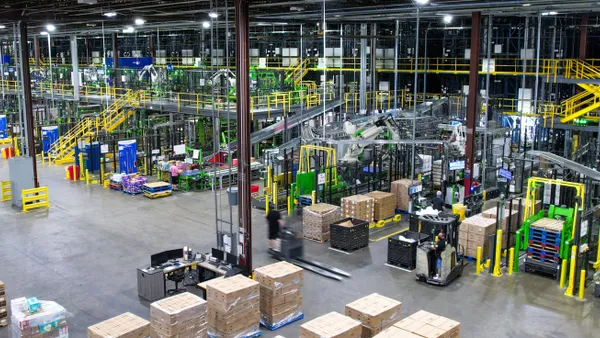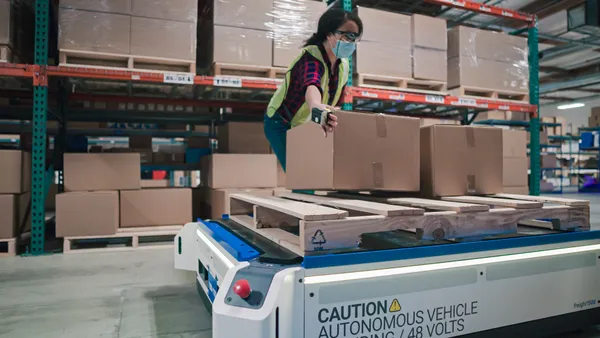Dive Brief:
- Manufacturing CFOs are more skeptical than economists that a recession will hit in 2020, according to a survey by BDO in which 20% of manufacturing CFO respondents believed a recession would happen this year. A 2019 survey by the National Association for Business Economists found 45% of economists believed a recession would happen in 2020.
- 51% of respondents in the BDO survey said they were working to increase production efficiency to guard against a future recession and 42% said they were monitoring the financial health of their suppliers.
- Increased automation and digitization will be one way companies will look to increase production efficiency as technology tools such as the Internet of Things and cloud become cheaper and more mainstream, according to Eskander Yavar, a manufacturing national practice leader with BDO and an author of the report.

Dive Insight:
Predictive maintenance is one technology application that could increase efficiency by reducing downtime and thus increasing throughput. It also means operations in the manufacturing facility are based on near real-time demand signals instead of economic indicators that could be from last quarter. Real-time data can help to ensure that inventory plans are in line with the market, Yavar said.
If the broader economy begins to show signs of struggle, though, manufacturers will also look outward at the health of their suppliers. Manufactures will likely keep an eye on KPIs like the supplier's ability to deliver on time or pay the bills. Supply chain relationship portals can help manage this, and some companies could provide incentives to suppliers that meet certain metrics, Yavar said.
"It's always more difficult to start a new relationship" with a supplier, he said, so it's important that organizations clearly state expectations from the beginning.
Inventory reduction was another recession-proofing strategy respondents highlighted. "You'll always see a bit of this pressure on working capital and inventory reduction from CFOs," Yavar said.
Some of the inventory reduction will come from a shift to just-in-time operations made possible by a company's access to real-time market data. This focus on lean inventories has grown as storage costs have increased with demand for space. Conversations with suppliers asking them to hold more inventory can also drive down costs, he said.
The strategies CFOs highlighted aren't tactics strictly for when a recession might be around the corner. They are best practices manufacturers can lean on whenever the economy gets shaky.
There have been concerns about a possible recession in the manufacturing industry for months now as the Institute for Supply Management's (ISM) manufacturing index showed signs of contracting toward the end of 2019. The latest numbers provided a more positive outlook, but some experts say the industry could continue to struggle with finding growth this year.
This story was first published in our weekly newsletter, Supply Chain Dive: Operations. Sign up here.













